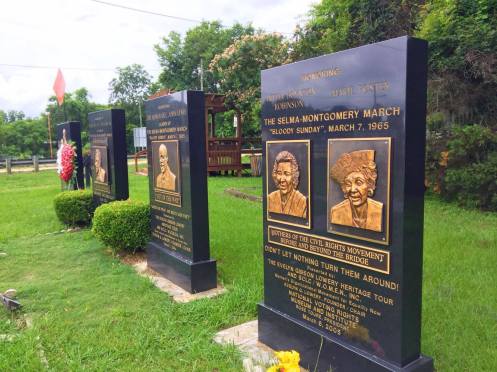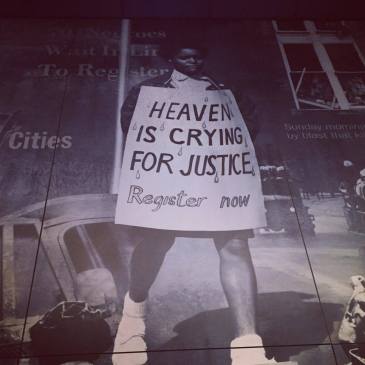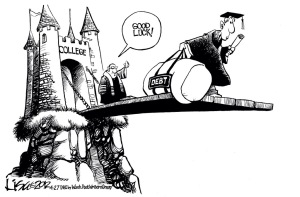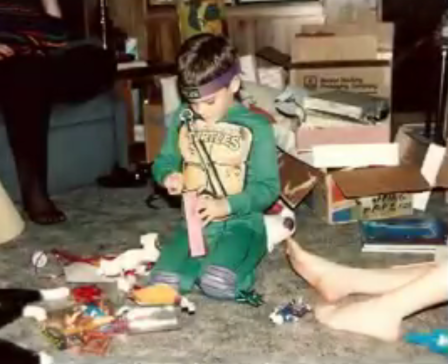“You realize of course that we could never be friends,” Harry says to Sally, slyly sneaking this disclaimer in to open the conversation of how sex always gets in the way of friendship. Possibly, he was just trying to work sex into the conversation any way he could. It is 1989, and Billy Crystal sits in Meg Ryan’s passenger seat painting a picture of gender relations past, present, future in the film When Harry Met Sally. It is a statement that, at the time, was describing gender relations in a post-sexual revolution era, but it also predicted how men and women would relate today in our world of app-based community and romance. Harry expresses his worldview in this context of two flirty college students, and it is charmingly funny, but when we look at where our churches are in the department of gender relations, it is nothing to smile about.

As the millennial generation continues to put off getting married, we feel a larger and longer relational gap. To fill this void, many turn to positive, healthy friendships for belonging and community. Many more, though, participate in hook-up culture and online dating, where people of the opposite sex are commoditized. What is then created is an environment where relationships are defined by sex and isolation is created by the void of loving friendships.
The church might be feeling the fallout of this trend most. Recent research shows that because of this, women are making their exit. According to Barna Group, since 2003 the percentage of churchgoers that are female has dropped 12 points, and it is not because more men are coming in. Coupled with this, Barna also reports that only 17% of women feel like they are “very emotionally supported” in their church or synagogue.
I wonder if we trying at all to create environments where marriage isn’t the only priority in male-female relationships? But here we are, and I think our churches could be spaces where our current generation, which is relying heavily on friendship as their main source of affection and support, should find what they are looking for. This is not a quick and easy task. Even though community is a major priority in the church, our inability to form friendships between men and women can leave us like Ricky Bobby in his first interview, scrambling to figure out what to do with his hands. If something doesn’t change soon, if we do not find a way to encourage friendship among singles, thereby offering women the support they need, we could lose an essential component to representing the image of God in our places of worship.
Men and Women Need to Communicate
Sadly, our culture doesn’t stress communication and friendship between men and women. Sex and romance are the current language of male-female relationships. The current state of interpersonal communication is frightening. Reading through Parks & Recreation star Aziz Ansari’s book Modern Romance makes talking to the opposite sex seem like a myth, a rarely sighted animal that culturally never shows its face. Look at the narrative both men and women have been presented in popular movies and TV. Men are always the heroes, flying, swinging, or smashing in to save the day. This is true for the latest Marvel films, anyhow. The most recognized and powerful Marvel female leads, Gwyneth Paltrow’s Pepper Potts and Natalie Portman’s Jane Foster, weren’t even invited to the party in the latest installment of the Avengers franchise. Why would they come anyway? In a bloated, male-driven superhero movie they more than likely would have served as little more than scenery. They are excluded unless the narrative calls for romance.

Looking for a positive narrative for women, let’s investigate Disney’s Frozen. In a lot of ways, the film has become a beacon of hope in the normal princess narrative because it is a female-driven story about sisterly love and triumphing over the societal pressure for women to hide who they are. Nevertheless, you won’t find positive inter-gender friendship-building in this most recent Disney flagship. It is reasonable that Anna lacks the skills to make friendships. Being locked in a kingdom her entire life could do that. But when she emerges from her isolated world, she falls for the very first man who catches her attention. Here is the problem with the majority of our princess narratives: The action begins when the man arrives and ends with the happily-ever-after wedding. There always has to be a love interest, right? Even the resourceful Tiana from Princess and the Frog and the courageous Mulan from Mulan have narratives revolving around a love interest. What made these women who they are? It wasn’t the men. Just once, wouldn’t it be nice if Kristoff and Anna stayed friends or Tiana opened her dream restaurant without being betrothed to Prince Naveen?
If we look at the narrative of Jesus’ life, though, we find that He didn’t think it necessary to have a love interest in order to have women around. Luke 8 tells a little bit of the account:
“Soon afterward he went on through cities and villages, proclaiming and bringing the good news of the kingdom of God. And the twelve were with him, and also some women who had been healed of evil spirits and infirmities: Mary, called Magdalene, from whom seven demons had gone out, and Joanna, the wife of Chuza, Herod’s household manager, and Susanna, and many others, who provided for them out of their means.”
These women were diverse, faithful, and incredible. Perhaps what stands out at first glance is how they financially supported Jesus’ ministry. They were dedicated to the cause as well as the cross. They followed Jesus all the way to the end and beyond and no wonder! Look at Mary Magdalene. Think about the absolute torture her life consisted of before meeting Jesus. What a story she has to tell. Our author, Luke, is a great example for our churches to follow. His first few lines tell you how he was a meticulous recorder of the history of Jesus. Many believe as he was on his travels alongside Paul, gathering information for a complete record of this story, he collected manuscripts and conducted interviews, interviews in which the women in Jesus’s life and ministry were not left out. In fact, it is likely that he even interviewed Mary, mother of Jesus. Can you imagine that conversation? Luke hearing firsthand Mary’s incredible story of being visited by an angel and life never being the same again. Our biblical authors didn’t pass these women up, and it means our churches shouldn’t either.
Today, we have our first female NFL coach, the first female graduates of Army Ranger school, a U.S. women’s World Cup title, a female mayor bringing gangs to peace in Compton, and on and on and on. These are opportunities and contributions that we do not see in male-dominated cultures around the world. Where women are oppressed, the culture suffers.

Why then does it seem that the church is still behind in this area? Can you imagine what stories the church is missing by not communicating well to the women in our midst? Jesus didn’t have women there alongside Him by accident; He thought it was necessary, and we’ve got to move beyond the romance narrative and have real conversations. Men and women need to seek each other out, talk face to face, and learn to ask good questions. You’d be surprised how infrequently women are asked, “What do you think about that?” Does the way we communicate with women in church communicate their value? Based on the Barna stats, it doesn’t sound like it. Our churches need to seek out women’s stories, talents, and opinions because they have great value.
Men and Women Need Borders Not Boundaries
Men and women in the church need to have more conversations and interactions if they are to lean on each other as friends. This is normally the point in the conversation when we talk about building up walls. Stories of professional athletes and pastors never going to lunch with women or riding in cars or elevators alone with them creates a sense of fear and confusion. Well get your trumpets ready, people, because we are walking around those walls and bringing them down.
For decades, male leaders in the church have lived by what is affectionately called, “The Billy Graham Rule.” It is said that the famous preacher and evangelist Billy Graham had a “rule” for his interactions with women. He would never be alone with a woman who was not his wife–not in a car, an elevator, or a meal. His thinking is that this is the best way to guard his marriage and his ministry. The fear is both internal and external. It is internal because it squashes a situation where temptation will abound. It is external because even the idea that a leader might be out alone with a woman could cause rumor, suspicion, or false accusations. This could be a valid fear for a church leader. But with one quick Bible app search, you’ll read what Jesus thinks about fear. Where is our trust in our sovereign Lord if fear is this severe in our churches? Also, what if these rigid boundaries are causing more harm than good?
In a recent article for Christianity Today’s Her.meneutics blog, Dr. Halee Gray Scott tells some of the horrors of creating strict boundaries in gender relations:
“As a researcher who focuses on female Christian leaders, I hear it over and over. The first female vice president of a Christian organization confessed she missed out on opportunities to advance her projects because the president made business decisions over lunch, and he promised his wife he wouldn’t eat lunch alone with women. It was enough to make her want to quit.”
Yes, it can cause a myriad of problems to be alone with someone of the opposite sex, but strict boundaries can shut people out of important, valuable ministry. Instead of creating giant walls in our relationships, what if we created helpful borders that can be moved and crossed when appropriate? We’ve got to find a balance and that may involve balancing our intentions.
Men and Women Need the “Friend Zone”
Oh, the “friend zone,” a term so dreaded in our society that it spawned a Ryan Reynolds romantic comedy, Just Friends. But what if the friend zone is exactly what we need in our churches?

The friend zone begins with creating flexible borders, not steel-reinforced boundaries. For example, let’s say we are never going to hug anyone of the opposite sex in our church. After all, physical touch alludes to romantic affection (and not everyone even likes being hugged). But is this the model Jesus presented to us? Jesus touched. Jesus hugged. Jesus embraced people of all walks of life. It is true that hugs can become inappropriate, but they can also be incredibly appropriate. One way to navigate this is to always ask if it’s ok to hug someone. This can be awkward and difficult, but abandoning all physical contact creates a world much like a 7th grade dance floor, with each gender on the opposite side clinging to the wall for dear life. The church is about unity not division. There is no exact science or standard you can set because everyone has different needs and feelings about things like physical touch, spending time alone with someone, and frequency of communication. We need to work through these spheres with individuals to create a space where people are heard and friendships can flourish. As with anything that isn’t clear cut, mistakes are bound to be made but our churches and our friend zones need to have grace and forgiveness built in.
It may also be necessary to redefine why we are in the church. The church should not be defined by the romance narrative of the culture. Can anyone point me to the scripture reference where it says that the church is there for you to find your mate? The church is God’s invention to equip His people and bless the world, to restore shalom to all areas of life. Finding your future spouse may be a result but it’s not the main idea. Let’s say God has called you to be married. How many people are you going to marry? So then, what happens with all of the other opposite gender relationships in your life? If you are currently married, making your spouse your only friend is a surefire way to put crippling pressure on them to be your only source for support. The God of the Bible is a God of community, and friendship is a gift God has given us.
When marriage becomes your main target for bonding with people of the opposite sex, then it’s difficult to build relationships, even friendships, that aren’t defined by sex in some way. This is exactly what Harry was talking about.
“This myth, then—the belief that sex wholly explains the depths of our most profound relationships—has led many of us in recent decades to feel suspicious of, uncertain about, and at times even ashamed of deep friendships and has hindered our search for closer and more fulfilling ones,” says Dr. Wesley Hill, a leading voice in the spiritual friendship movement. Creating the friend zone involves both genders meeting in that space with the motive to hear each other’s stories, provide love and support, and build a vibrant, diverse church community.
Men and Women Need Each Other
Creating churches where genders are constantly divided is an effective mode of making people lonely and isolated. Do you remember the book Men Are from Mars, Woman Are from Venus? However gimmicky the title may be, there is some truth to the idea that men and women are different. Sometimes it does feel like we might as well be from different planets, but we both come from the same image. We carry the image of God together as the human race, and we need each other to show that image to the world and to the people in our church.
In my role as a campus minister, I get to meet and work with too many women who come from a background where they never had a healthy relationship with their father and have never been shown love and respect in a dating relationship. In fact, many come to college having been used and degraded in almost every relationship in their lives. What if a woman like that comes into a church environment where she is treated like something to fear? What if she is treated only as the romantic interest of a greater narrative? She will never experience the image of a Father who will never use and abuse her. She will never experience the image of a brother who has her back. She may never have the space to build relationships that speak the Gospel into her life.
When creating our friend zone, we must be looking and thinking about people as friends first. It means our first thoughts about these people are how we can love and serve them and wondering how they will positively contribute to the Body of Christ. It means recognizing gifts and hearing stories. It means bringing our true selves into our churches and sharing that with others by communicating openly and honestly. We’ve got to navigate these waters with the intent to be Kingdom builders, to welcome people of any gender into our houses of worship to meet our servant King. It’s time for our churches to step up and prove Harry wrong. Men and women can be friends, and if we are going to help our churches flourish and truly reflect the image of God we, in fact, are called to be friends.
This article originally appeared in Christ & Pop Culture Magazine. (Edit 2017)




























 Neither of my parents had particularly charmed lives. Our family history is filled with stories of abuse, family turmoil, and tragic death. Any one of those things can end up defining you for a life time. Our legacies can be marked by the worst moments of our lives, the greatest examples that we indeed live in a fallen world. These moments cause great division and pain, they create the need for reconciliation.
Neither of my parents had particularly charmed lives. Our family history is filled with stories of abuse, family turmoil, and tragic death. Any one of those things can end up defining you for a life time. Our legacies can be marked by the worst moments of our lives, the greatest examples that we indeed live in a fallen world. These moments cause great division and pain, they create the need for reconciliation.
